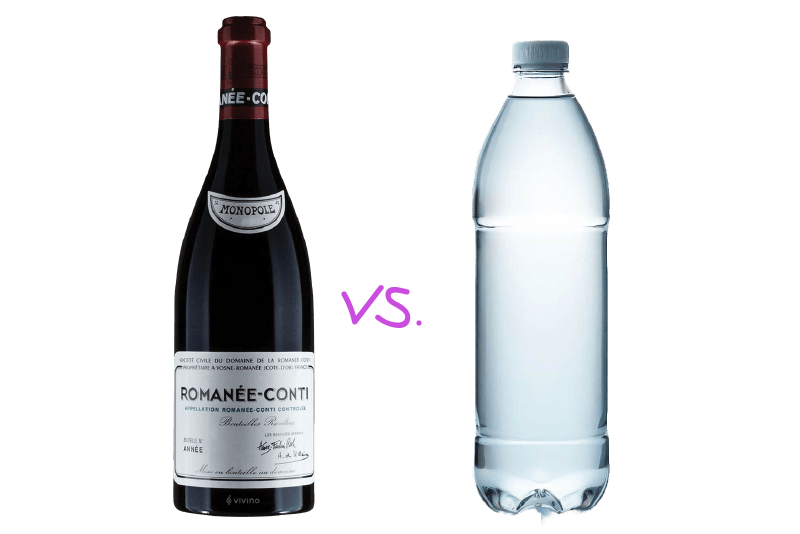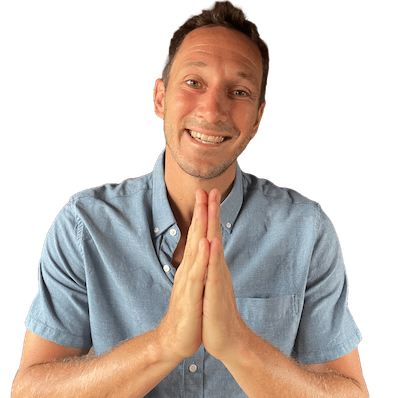Imagine you’re Salvator Mundi:

Yes, you’re a painting. Leonardo da Vinci created you around the year 1500. Five hundred and seventeen years later, you sold for $450.3 million.
What a great moment! You’re worth almost half a billion dollars! How self-affirming.
But then you get locked away in storage.
You’ve been hanging around there since.
The good news? You’re probably worth even more than half a billion by now. And you’re in the most luxuriously comfortable place imaginable where all your physical needs are met.
The bad news? You feel like crap. Because you’re not being useful.
Fulfillment Empties Fast Once You’re Useless
A lot of retirees, start-up exit-ees, inheritees, and lottery winners know how it feels to be like Salvator Mundi in storage. They’re worth a lot. Their physical needs are exceeded. And they’re unfulfilled because they’re not doing anything useful.
I got a taste of this feeling in 2014. I was 28. I was a year into my pretirement. I’d traveled all over. I was free. And I had enough Apple and Amazon stock to keep at it for years.
Then, one day, Bing!

The low fuel warning light flashed on my mental dashboard: Approaching emptiness.
So soon!? Since I’m not one of those lunatics who takes pride in draining their tank to the last milliliter, I stopped my joyride and rushed to hit the pump to fill up by doing useful things.
This taught me a lesson:
Fulfillment empties out quickly after you stop doing useful things.
(Either that or I have terrible mileage.)
Income Is a Proxy For Usefulness
We tend to use income as a proxy for measuring usefulness. It’s a convenient approximation that society ingrains in us and our status-seeking brains glom onto.
In income’s defense, it’s much easier to gauge than usefulness and the two are correlated:

I find Income ≅ Usefulness handy for thinking about my own career and why I’m sitting here writing this on a 9-year-old laptop in a 1-bedroom apartment that will soon have four residents.
The more useful the things you do, the more people will pay you for them. And if you don’t do useful things, you may have to beg people to support your newsletter. (Ahem)
When you stop making enough income to cover your basic needs, you feel the opposite of useful: needy.
Neediness doesn’t only affect bloggers. It affects those who own millions of dollars worth of Bitcoin, Vanguard ETFs, or real estate. They have wealth, but no income, so they start feeling empty and questioning their usefulness. This explains “paycheck envy”, Paul Millerd’s term for the irrational emotion that leads us to prefer steady cash flows over one-time payments. Anyone who knows they’re being useful doesn’t experience “paycheck envy.”
Uniqueness Matters, Too
Uniqueness multiplies the value of usefulness.
To illustrate, consider this: Which is worth more, a bottle of water or of Romanée-Conti wine?

It’s not a trick question. The $26,000-a-bottle Burgundy wins. But imagine how much 750ml of water would cost if only 6,000 to 8,000 cases were available next year.
This explains the harsh reality of why I struggle to cover my expenses with my writing. My ideas are not as unique and useful as I would like to believe.
Even so, I’m far from feeling miserably unfulfilled from lack of usefulness.
Why?
Thanks to relationships.
Relationships Are Super Unique and Useful
Money approximates usefulness to people you don’t have relationships with. But if you have a good relationship with someone, that correlation goes away.
What is a “good relationship”?
One in which two people are useful to each other.
Good relationships are so effective at fulfilling us because their usefulness is generative. If I pay for a massage, only the masseuse feels useful. But if I give Zac a big hug, both of our usefulness meters tick upward. We’re useful to each other.
Relationships are especially valuable because its uniqueness exceeds that of a bottle of Romanée-Conti. This is why I’d give all my money to get Zac back from a kidnapper. (Don’t get any ideas.)
The feeling of usefulness from good relationships lasts longer than that from income. You don’t even always have to do things to be useful in a good relationship. Simply knowing you’ve got each other’s back is useful in its own right. And being the recipient of the others’ usefulness works, too. Asking a friend for help (the right way) gives them the opportunity to be useful, which makes you useful, and strengthens your useful relationship.
The upshot of all this?
Once your basic needs are met, if your life is full of good relationships, income becomes irrelevant to fulfillment.
Empty-feeling retirees, start-up exitees, and inheritees miss this point. So did a certain over-confident, deluded 28-year-old. “Feel-goody nonsense from a low-income loser,” is what my 10-years-younger self would say to this idea that maximum usefulness comes from close relationships.
In response, I’d suggest he read The Good Life.

The Good Life: Simple to Grasp, Hard to Embrace
Robert Waldinger and Marc Schulz, the authors of The Good Life, are the directors of the Harvard Study of Adult Development, the longest scientific study of happiness ever conducted.
Since 1938, the study has followed, surveyed, and measured the lives of hundreds of young Bostonian men and their offspring.
Waldinger and Schulz spill the beans in Chapter 1:
If we had to take all eighty-four years of the Harvard Study and boil it down to a single principle for living, one life investment that is supported by similar findings across a wide variety of other studies, it would be this: Good relationships keep us healthier and happier. Period.
“Ok,” snarky 28-year-old Chris would say, “If the answer’s so simple, why’d they have to write a whole book about it?”
Because we refuse to accept it! We’re stuck on the idea that we need a steady stream of strangers’ money and admiration to prove our usefulness and feel fulfilled.
As Waldinger and Schulz write, “We tend to think we know what makes us feel fulfilled, what is good for us, and what is bad for us.” But “one hard truth that we would all do well to accept is that people are terrible at knowing what is good for them.”
“Common sense in this area of life is not so sensible.”
Now let’s go back to imagining you’re Salvator Mundi locked away in some ultra-secure storage room.
Three people come in. They don’t look happy.
You overhear the bad news in their conversation: New AI technology has determined you’re not da Vinci’s offspring. Some guy named Luigi snuck into Leonardo’s studio one day and made you.
Your worth has cratered to single-digit millions. Ouch. The Saudi prince who owned you hawked you off to some businesswoman in Kamloops, British Columbia.
That day turns out to be the best in your life. Better than the day you sold for $450.3 million.
This businesswoman thinks you’re the most fabulous painting in the world. You make her day every time she looks at you. And she shows you off to all her friends who come over.
Life is great. You’re doing what you were made to do. And you’re being uniquely useful to people who care about you, and vice versa.
“Strive not to be a success, but rather to be of value.”
– Albert Einstein

Can You Help Me?
"Feedback givers are architects of ideas and catalysts for change."
I desperately need your feedback on The Zag because I'm struggling to improve it. Please leave your quick, 100% anonymous thoughts here.
About the author
👋 I'm Chris. Everything you read on TheZag.com is my fault. This site is like a gym for your comfort zone, full of challenges to make your status quo sexier. Join my 'Consider This' newsletter for a fun new challenge every 10 days. Try it!



Leave a Comment